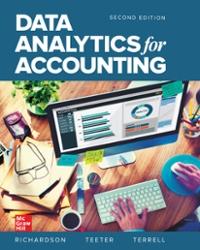Question
Suppose there are two agents, N and S, who are choosing when to go a restaurant. They are choosing when to go within the next
Suppose there are two agents, N and S, who are choosing when to go a restaurant. They are choosing when to go within the next five weeks, they can each only go once (they don't have to go at the same time), and each week the restaurant has a different special which they will order. Today (t = 0), the special is cauliflower, which gives each agent 1 util. Next week (t = 1), it's steak, which yields 4 utils. The week after (t = 2), the special is a salad, which they value at 6 utils. The following week (t = 3), the restaurant serves salmon, worth 9 utils. Finally, by far the best special of all is in the last week (t = 4), when they serve ravioli, worth 15 utils. Suppose= 1,= 1/2 for both agents, but N is a naif and doesn't know he is present biased (thinks his= 1) whereas S is a sophisticate and knows her= 1/2.
a. When would a time consistent agent (= 1) go to the restaurant, given= 1?
b. When will N, the naif, go to the restaurant?
c. When will S, the sophisticate, go to the restaurant?
d. Who is better off in terms of receiving higher utility?
Step by Step Solution
There are 3 Steps involved in it
Step: 1

Get Instant Access to Expert-Tailored Solutions
See step-by-step solutions with expert insights and AI powered tools for academic success
Step: 2

Step: 3

Ace Your Homework with AI
Get the answers you need in no time with our AI-driven, step-by-step assistance
Get Started


